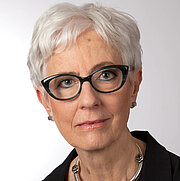with Inge Kaul, Christian Flachsland, and Nina Hall
Climate change, financial stability, threats to health, peace and security are all major global challenges. Yet solutions are elusive amid rising nationalism and public skepticism of global institutions. These issues can hold benefits and/or costs for people around the world, which is why scholars, policy-makers and civil society activists now frequently see them as global public goods (GPGs). But attaching the public-good label to global challenges can be problematic, as the theory of public goods originated in a domestic policy context. This event examines the latest academic and policy debates on GPGs and presents the findings of Global Public Goods, a new book edited by Inge Kaul. What are the benefits of examining global challenges through the lens of GPGs? Does it help resolve these challenges more swiftly and effectively? And how can we ensure the adequate provision of global public goods in an era of increasing nationalism?
Book presentation:

Inge Kaul is an Adjunct Professor at the Hertie School. She served as the first director of the Human Development Report office of UNDP, New York, between 1989 and 1995 and later as director of UNDP’s Office of Development Studies. Her publications include Global Public Goods (Cheltenham: Edward Elgar Publishing, 2016) Providing Global Public Goods; Managing Globalization (New York: OUP, 2003) and The New Public Finance; Responding to Global Challenges (New York: OUP, 2006). Her current research focuses on issues of policy change, notably the identification of factors and conditions that facilitate or impede policy responses to global challenges, and thus, successes and failures of global governance.
Discussant:

Christian Flachsland is Assistant Professor of Climate and Energy Governance at the Hertie School. His research focuses on climate and energy policy options across different levels of governance. Flachsland is also head of the governance working group at the Mercator Research Institute on Global Commons and Climate Change (MCC). He previously co-led the working group Assessments and Scientific Policy Advice at MCC, and was a contributing author to the Fifth Assessment on the Mitigation of Climate Change by the Intergovernmental Panel on Climate Change (IPCC). He studied sociology, economics and philosophy at Potsdam University and was a PhD student at the Potsdam Institute for Climate Impact Research (PIK). He earned his PhD from the TU Berlin in 2010.
Moderation:

<link en who-we-are profile person hall>Nina Hall is a lecturer in global governance at the Hertie School. She researches on transnational advocacy, global refugee and migration governance, and climate change adaptation. Her book Displacement, Development and Climate Change, International Organizations Moving Beyond their Mandates was published by Routledge in 2016. She has a PhD in International Relations from the University of Oxford and is now collaborating with a global network of digital activists. She has previously worked with the World Economic Forum and the New Zealand Ministry of Foreign Affairs and Trade, and holds a Master's Degree from the University of Auckland, New Zealand. She has published in Global Environmental Politics, Global Governance, and the Guardian.

